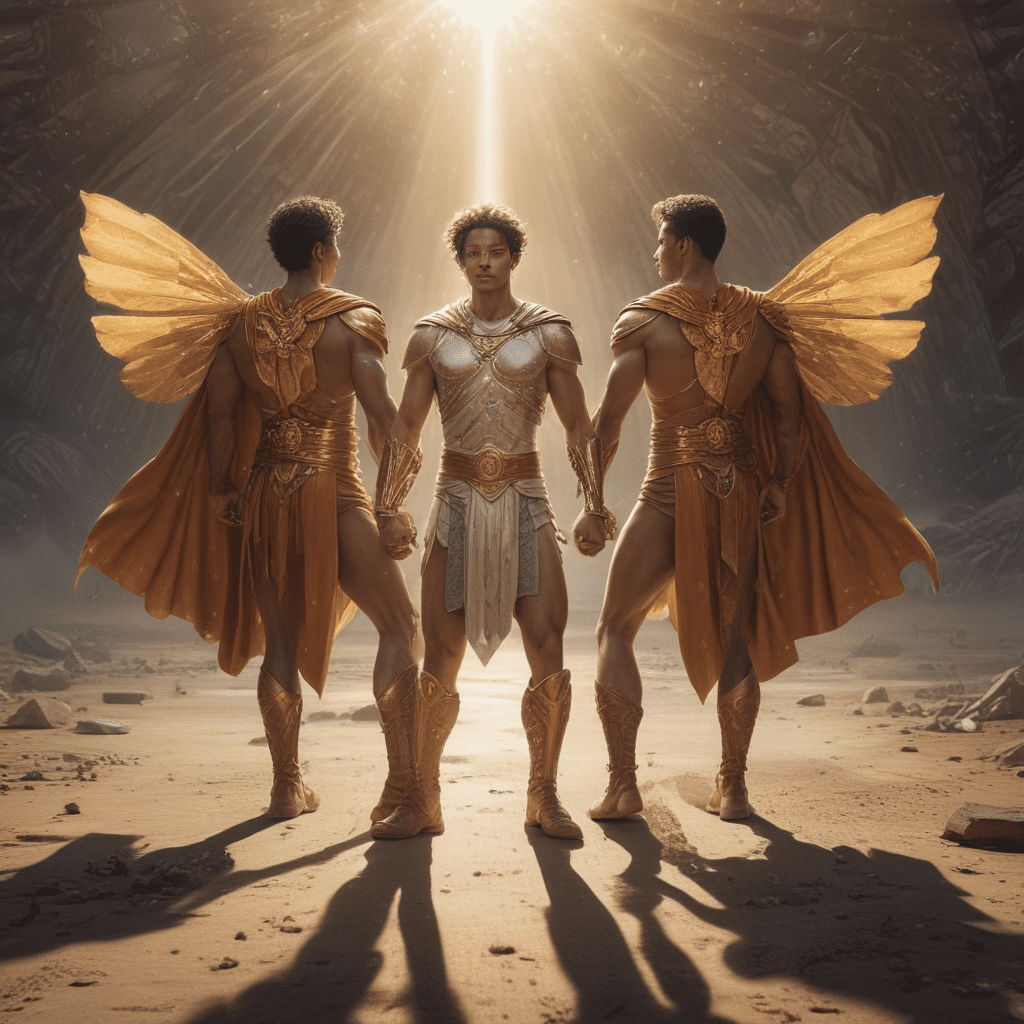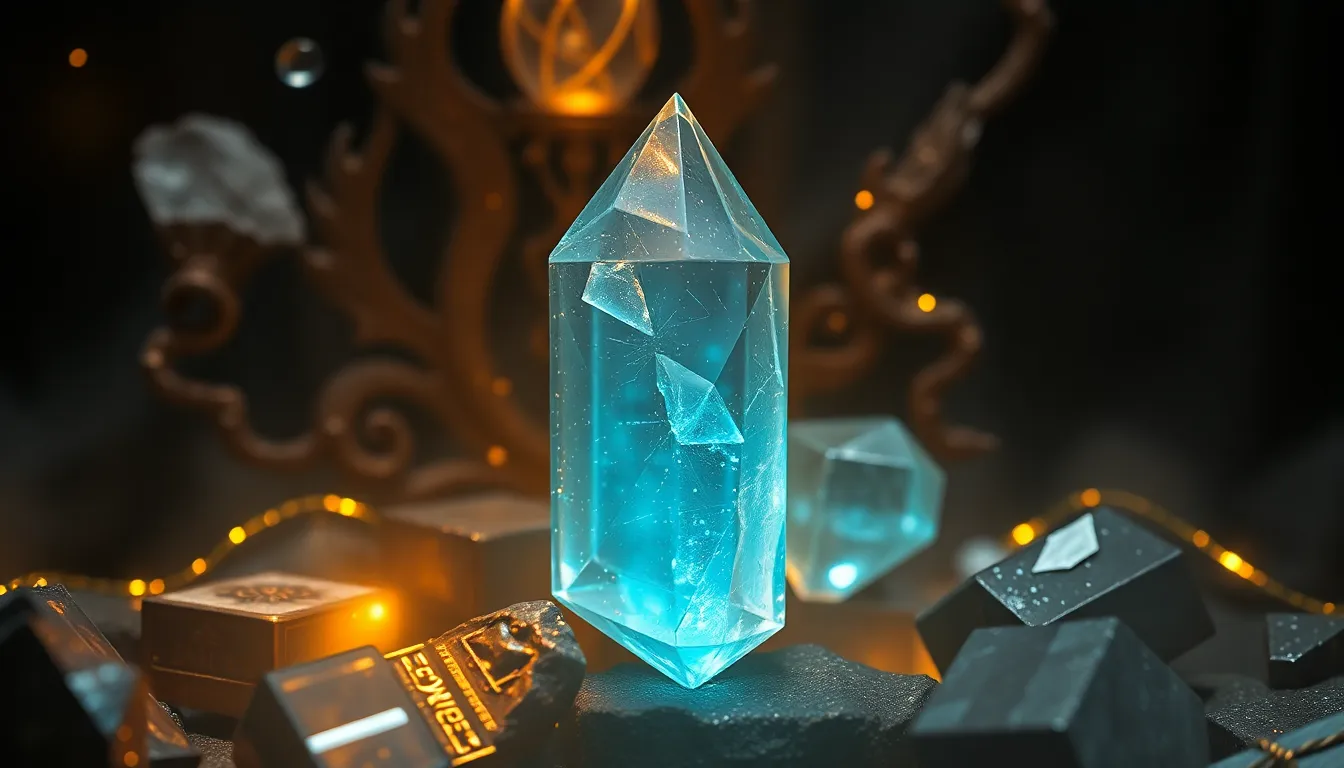The Myth of the Hero Twins: Journey to Defeat Death
Introduction
The myth of the Hero Twins is a fascinating and recurring theme found in numerous cultures across the globe. These tales of two extraordinary siblings embark on perilous journeys, often grappling with the ultimate challenge of death. The Hero Twins myth holds significant meaning in various cultures, serving as a powerful metaphor for overcoming mortality and exploring the complexities of human existence.
This article delves into the captivating world of the Hero Twins, exploring their cross-cultural presence, their symbolic journey to defeat death, and the diverse interpretations inspired by their timeless tale. We will also examine the enduring relevance of the Hero Twins myth in modern culture and its continued influence on our understanding of heroism, mortality, and the human spirit.
The Hero Twins: A Cross-Cultural Phenomenon
The Hero Twins archetype is remarkably prevalent across various cultures and time periods. From ancient Sumerian mythology to modern-day superhero narratives, the concept of two heroic siblings facing challenges together resonates deeply with audiences worldwide.
In Sumerian mythology, the legendary twins Gilgamesh and Enkidu embark on a quest for immortality, grappling with themes of mortality, friendship, and the limits of human achievement. Similarly, Mayan mythology features the Hero Twins Hunahpu and Xbalanque, who descend into the underworld to confront the lords of death and emerge victorious, symbolizing the triumph over death and the cycle of life and rebirth.
In Greek mythology, Castor and Pollux, the Dioscuri twins, represent the duality of life and death. Castor, the mortal twin, succumbs to death, while Pollux, the immortal twin, bargains with Zeus to share his immortality with his brother. This tale reflects the complex relationship between life and death and the enduring power of brotherly love.
These examples illustrate the cross-cultural reach of the Hero Twins myth, showcasing its adaptability and enduring relevance across diverse cultural contexts. The shared themes of heroism, mortality, and the quest for transcendence make the Hero Twins a universally relatable and captivating archetype.
The Journey to Defeat Death: A Central Theme
At the heart of the Hero Twins myth lies the central theme of the journey to defeat death. The twins' adventures often involve confronting death in various forms, whether through retrieving a magical object, battling monstrous creatures, or venturing into the underworld. Their success or failure in overcoming death carries significant symbolic meaning, reflecting the cultural beliefs and attitudes towards mortality.
In some myths, the twins ultimately succeed in defeating death, achieving immortality or bringing life back to the land. This victory symbolizes the triumph of hope over despair and the human spirit's relentless pursuit of overcoming mortality. In other tales, the twins may face defeat, highlighting the inevitability of death and the importance of living life to the fullest.
The symbolic journey of the Hero Twins serves as a powerful metaphor for the human struggle against mortality. Their adventures reflect our deep-seated desire to transcend death and leave a lasting impact on the world. The myth also reminds us of the importance of facing our fears, embracing challenges, and striving for something greater than ourselves.
Theories and Interpretations
The Hero Twins myth has inspired numerous interpretations, captivating scholars from various disciplines. Psychologists view the myth as a representation of the individuation process, where the twins symbolize the integration of the conscious and unconscious aspects of the self. Sociologists analyze the myth through the lens of social structures and power dynamics, exploring the roles of cooperation, competition, and sacrifice within fraternal bonds. Anthropologists interpret the myth as a reflection of cultural values and beliefs about death, heroism, and the afterlife.
The diversity of interpretations underscores the richness and complexity of the Hero Twins myth. Its enduring appeal lies in its ability to resonate with individuals and societies on multiple levels, offering insights into the human psyche, social dynamics, and cultural beliefs. The myth continues to inspire scholars and artists to delve deeper into its symbolism and explore its relevance in contemporary society.
6. The Hero Twins in Modern Culture
The Hero Twins myth continues to exert a powerful influence on modern culture, reinterpreted and adapted in various forms of creative expression. Contemporary literature, film, and popular culture draw inspiration from the archetypal themes of heroism, mortality, and the quest for transcendence.
In literature, authors such as J.R.R. Tolkien in "The Lord of the Rings" and Rick Riordan in the "Percy Jackson" series have incorporated the Hero Twins archetype into their narratives. Tolkien's Frodo and Sam represent a modern iteration of the Hero Twins, their journey to defeat Sauron echoing the quest for immortality and the triumph over evil. Similarly, Riordan's Percy and Annabeth, children of the Greek gods Poseidon and Athena, embody the twin qualities of courage and wisdom, navigating the mythological world and facing challenges together.
Filmmakers have also tapped into the enduring appeal of the Hero Twins myth. The popular "Star Wars" franchise features Luke and Leia Skywalker, twin siblings who embark on separate but interconnected journeys to restore balance to the Force. Their adventures mirror the Hero Twins' quest for justice and the struggle against tyranny. Similarly, the "Harry Potter" series presents Harry and Ron, two close friends who share numerous adventures and face life-threatening challenges together, reflecting the themes of brotherhood and the power of friendship.
Popular culture also embraces the Hero Twins archetype in various forms. Superhero comics and graphic novels frequently feature twin characters who possess complementary powers and work together to overcome evil forces. Examples include the Fantastic Four's Human Torch and Thing, the X-Men's Iceman and Pyro, and the Flash and Kid Flash. These modern-day Hero Twins embody the ideals of heroism, selflessness, and the pursuit of justice.
The enduring presence of the Hero Twins myth in modern culture highlights its timeless relevance and its ability to resonate with contemporary audiences. The themes of heroism, mortality, and the quest for transcendence continue to captivate and inspire, reminding us of the human spirit's capacity for courage, resilience, and the pursuit of something greater than ourselves.
7. Contemporary Significance of the Hero Twins' Journey
In contemporary society, the Hero Twins' journey holds significant relevance as a metaphor for overcoming challenges and achieving personal growth. The twins' adventures serve as a reminder that facing adversity and embracing challenges can lead to self-discovery, transformation, and ultimately, triumph.
The Hero Twins' journey resonates with individuals navigating personal struggles, whether it be overcoming illness, pursuing a dream, or facing significant life changes. Their determination, resilience, and unwavering belief in themselves inspire us to persevere through difficult times and emerge stronger on the other side.
The myth also emphasizes the importance of collaboration and support. The Hero Twins often rely on each other's strengths and weaknesses, demonstrating the power of teamwork and the value of having a trusted companion on life's journey. In a world that often emphasizes individualism, the Hero Twins remind us of the importance of fostering strong bonds and supporting one another in times of need.
Furthermore, the Hero Twins' quest for transcendence embodies the human desire for meaning and purpose in life. Their adventures remind us that we all have the potential to achieve something extraordinary, whether it be leaving a lasting impact on the world, making a difference in the lives of others, or simply living a life true to ourselves.
The Hero Twins' journey serves as a timeless guide for navigating the challenges of life, reminding us of the importance of courage, resilience, collaboration, and the pursuit of something greater than ourselves. Their enduring story continues to inspire generations to embrace their inner hero and strive for a life filled with purpose and meaning.
8. Conclusion
The Myth of the Hero Twins holds profound significance across cultures and time periods. Its central theme of defeating death serves as a powerful metaphor for overcoming mortality and exploring the complexities of human existence. The cross-cultural prevalence of the myth underscores its universal appeal and its ability to resonate with audiences worldwide.
The Hero Twins' journey continues to inspire and captivate in modern culture, reinterpreted and adapted in various forms of creative expression. Their enduring presence highlights the timeless themes of heroism, mortality, and the quest for transcendence, reminding us of the human spirit's capacity for courage, resilience, and the pursuit of something greater than ourselves.
The Hero Twins' myth serves as a timeless guide for navigating the challenges of life, reminding us of the importance of courage, resilience, collaboration, and the pursuit of something greater than ourselves. Their enduring story continues to inspire generations to embrace their inner hero and strive for a life filled with purpose and meaning.
9. FAQ
Q: What are some other examples of the Hero Twins myth?
A: The Norse mythology features the twins Thor and Loki, who represent the opposing forces of strength and chaos. The Egyptian mythology includes Horus and Set, twins who engage in a cosmic battle for power. The Native American mythology often features twin brothers as cultural heroes or tricksters, such as the Navajo twins Nayenezgani and Tsohanoai.
Q: How does the Hero Twins myth relate to other myths and legends?
A: The Hero Twins myth shares similarities with other myths and legends that explore themes of heroism, mortality, and the quest for transcendence. Examples include the Greek myth of Hercules, the Arthurian legend of King Arthur, and the Japanese legend of Momotaro.
Q: What are some criticisms of the Hero Twins myth?
A: Some critics argue that the Hero Twins myth reinforces traditional gender roles and emphasizes competition over cooperation. They also point out that the myth often overlooks the contributions of female characters and presents a limited view of heroism.
Q: What are some resources for further exploration of the Hero Twins myth?
A: Several books and articles explore the Hero Twins myth in depth, including "The Hero with a Thousand Faces" by Joseph Campbell, "The Twins: A Study in Comparative Mythology" by Otto Rank, and "The Myth of the Twins" by Mircea Eliade. Numerous online resources also offer insights into the myth, such as the Mythological Society of America's website and the Joseph Campbell Foundation's website.



